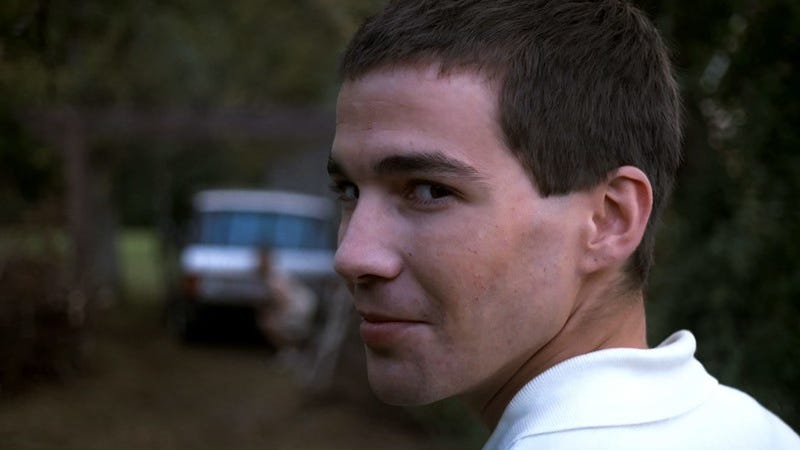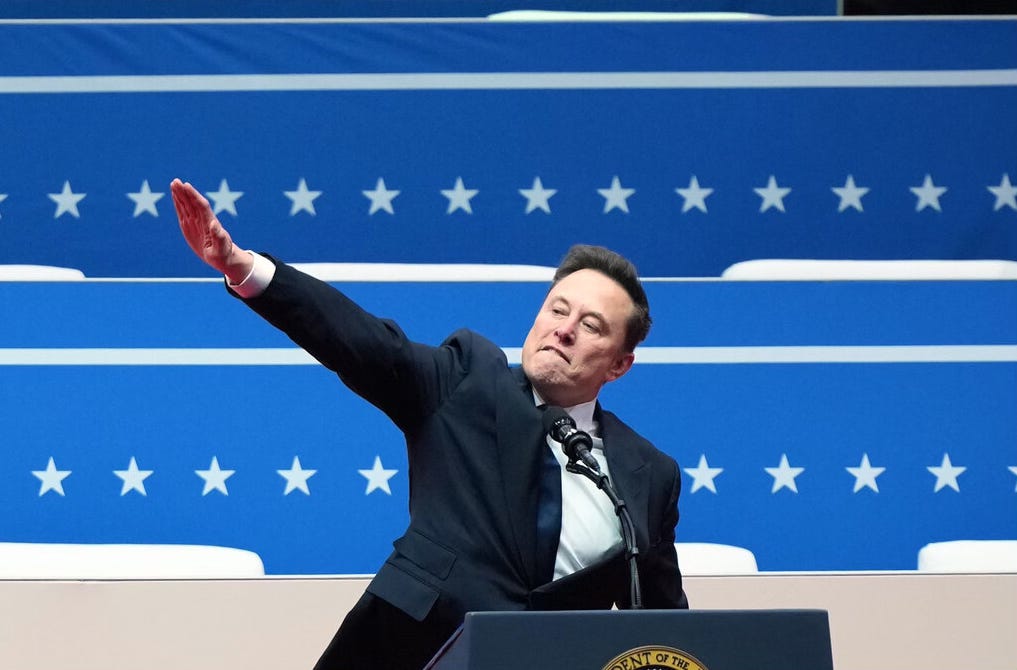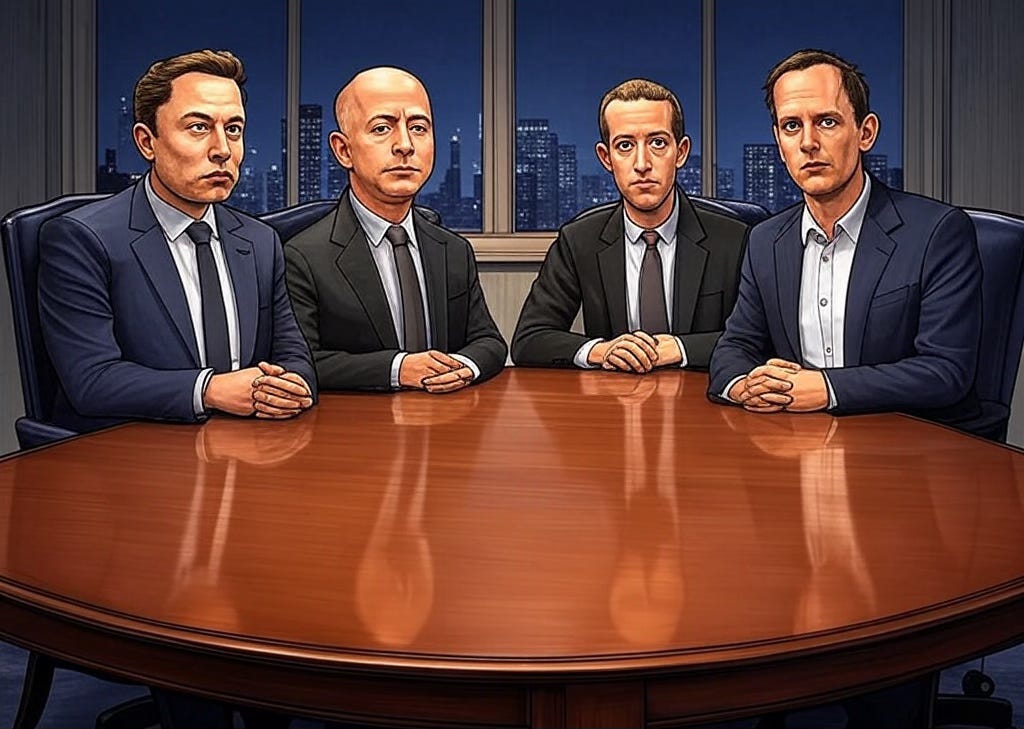The glitch
State-sponsored celebrations in today’s Russia are rarely apolitical, and last month’s 270th anniversary of the country’s leading educational institution, Moscow State University (MSU), was no exception.
The pompous gala concert devoted to the MSU’s anniversary featured lengthy video projections intertwining Russia’s ideologised and mythologised history with that of the university. In effect, it celebrated the Kremlin’s vision of Russian greatness with an emphasis on popular enthusiasm – verging on a willingness to sacrifice – as a driving force behind the nation’s might.
Given the Kremlin’s contemporary glorification of Soviet totalitarianism, it was only natural to see Soviet dictator Stalin and his accomplices featured prominently in the video show. But when the screen showed a row of Soviet leaders, an odd thing happened: moving on the screen, the face of Lavrentiy Beria, the dreaded chief executor of Stalin’s terror, suddenly winked.
Given Beria’s murderous character, his wink felt as ominous as the harrowing wink of one of the villains breaking the fourth wall in Michael Haneke’s brutal masterpiece Funny Games (1997). Did Beria projected on the screen promise to the audience of the MSU gala concert the return of Stalinist terror packaged as the celebration of Russia’s grandeur?
In fact, there was no wink – it was an optical illusion caused by excessive sparkle and flash. It was unintentional, yet, mysteriously, such accidents tend to unveil hidden truths about Russia.
Remember a technical glitch during the bombastic opening ceremony for the Winter Olympics in Russia in 2014 that prevented one of the five Olympic rings to open? In retrospect, one can say that the accident reflected the protest of the spirit of the Olympic Games, the concept of which had, since ancient times, encouraged Olympic Truce, against Russia’s preparations for the covert military occupation of Ukraine’s Crimea during the Games.
How, then, shall we interpret the MSU gala concert and the Beria optical illusion? The obvious interpretation is that the pretentious celebration of the totalistic unity of the Russian state and Russian people was a performative imitation of something that does not exist in Russia’s reality.
The method
Unlike the USSR, Putin’s Russia is not a modernist state – if anything, it is one of postmodernist nature. Totalitarian modernist states of the 20th century such as the Third Reich or Soviet Union, whose aesthetics and rhetoric Moscow is always excited to mimic, all had their utopian visions of the future, and they, indeed, turned their populations into societies of willing sacrifice for those visions. It is a defining feature of political modernism – not only of a totalitarian nature, of a liberal too – to construct the present as a foundation for a future that one longs for.
In contemporary Russia, however, the present is being shaped in two distinct ways, both not only refusing to imagine a better future, but also actively resisting the arrival of the future as such.
One approach replaces the future as the goal of today’s socio-political efforts by the efforts aimed at rectifying and perfecting the past. This is the battle in which president Vladimir Putin and his circle of “history experts”, such as Vladimir Medinsky, are actively engaged. They strive to construct the present that succeeds the past that never existed. Russia’s war against Ukraine aiming to eradicate the Ukrainian nation is a major element of this battle for the imaginary ideal past, in which the Ukrainian nation simply did not exist.
The second approach to shaping the present is based on avoiding the future by stretching the present indefinitely. To achieve this, the Kremlin relies on so-called political technologists or social architects, a technocratic elite who see society as a passive entity that can and should be programmed and managed in service of the ruling class.
In practice, political technologists such as Sergey Kiriyenko, First Deputy Chief of Staff of Russia’s Presidential Administration, manufacture endless fake socio-cultural conflicts and artificially amplify existing tensions. Their goal is to divert society’s attention from any collective efforts to envision and shape a better future. By overwhelming the public sphere with contrived disputes, they trap society in a fabricated, never-ending present – a state of perpetual distraction that prevents meaningful change.
Ultimately, through its dual offensive against the future, the Kremlin creates a postmodernist simulacrum of the present, a simulation entirely detached from any reality.
Among many crimes of the Kremlin’s simulation against society is its assault on the individual as a free, rational, and responsible agent capable of defining their own meaning and purpose in life. This assault is rooted in an elitist, deeply anti-democratic conviction that people are incapable of organising society themselves and must be dictated by the ruling classes to ensure its functionality – ultimately serving to preserve the political and economic domination of the elites.
One of the leading Soviet political engineers, Georgiy Shchedrovitsky, claimed – ironically, in the waning days of the Soviet Union – that not only such social order was the sole rational organisation of human society, but also that the totalitarian Third Reich and Soviet Union had pioneered the socio-political structures that all states, including democracies, would inevitably adopt to ensure humanity’s progress.
Shchedrovitsky’s ideas stemmed from the Soviet belief in the superiority of the fundamentally anti-individualistic planned economy over capitalism with its emphasis on individual effort as the key driver of success. And this belief extended beyond the Soviet Union itself: Shchedrovitsky and his contemporaries saw the Soviet model as universally applicable and destined to replace Western liberal models.
Post-Soviet Russian political technologists, emboldened by their domestic achievements in manipulating the Russian public, have retained the Soviet-era belief that Russia is pioneering political strategies destined to be adopted by other countries.
It is thus not surprising that, in 2024, a major Russian political technologist Vladislav Surkov, who was responsible for the Kremlin’s social engineering policies from 1999 to 2011, alleged that various world powers, such as Turkey, Israel, China, and the US, were imitating, or retranslating, Russian imperialist ambitions: “Russia is flanked by its doubles and imitators unfolding a veritable parade of imperialisms – miniature and grandiose, provincial and global – often ridiculous, but more often serious”.
It is naturally self-aggrandisement on the part of Russian political technologists claiming that Western societies are adopting or imitating Russia’s socio-political or foreign policy models. However, what Russia may have truly pioneered – and what may have indeed inspired certain leaders across the world – is the postmodernist method of controlling and programming society by replacing reality with a simulation entirely detached from it.
The salute
When American oligarch Elon Musk gave a “Nazi salute” at Donald Trump’s victory rally on 20 January 2025, he was hardly expressing Nazi sympathies, regardless of whether he holds them or not. Rather than glorifying racist ideas, Musk appeared to be invoking Nazi aesthetics to celebrate the idea of power and, simultaneously, impunity for breaking the taboo against Nazi symbolism among the liberal-democratic elites. In a purely postmodern fashion, the meaning of the gesture was the act itself rather than its obvious association with historical or contemporary Nazi movements.
The power that Musk celebrated is the power to gaslight populations, asserting that whatever simulation or falsehood oligarchic elites devise to maintain control, they will relentlessly support it with enough resources to make it a convincing substitute for reality.
Western societies have a complex relationship with falsehoods originating from domestic structures. Generally, they tolerate deception when it occurs within the framework of competition. It is considered acceptable for commercial companies to dishonestly denigrate their competitors, and exaggerate the quality of their own products and services, claiming, for example, to be the best on the market. Likewise, competing political parties can knowingly amplify real or imagined faults of their opponents or overstate their own ability to fix the supposed failures of those in power – without facing significant social backlash.
However, what Western societies do not tolerate is deception from authorities acting from a position of power rather than competition. This is why, when governments do lie, they go to great lengths to conceal it.
What Putin’s Russia has introduced into this complex landscape is a new dimension: elite-sponsored fabrication of alternative reality that is not only evident but also left unpunished by society. Naturally, Western democratic elites – who are no strangers to PR, advocacy, lobbying, and reputation management – understand the power of shaping falsehoods. However, what they have only recently come to realise is what Russia has demonstrated with its domestic and, especially, foreign policies: this can be done openly. The key to avoiding consequences lies in social engineering – through media control or, ever more effectively, through the manipulation of social media algorithms.
Surkov insightfully observed that when Russia still maintained normal relations with the West, it mimicked Western political institutions to mask its own unflattering political culture. The end of this imitation marked Russia’s decisive departure from the West. For Surkov, this shift was an act of honesty: unlike Western governments, which use democratic institutions as a smokescreen for anti-democratic policies, the Kremlin openly displayed the “brutal frames of the power carcass” of Russia’s system, unadorned by any decorative façade.
Gone are the days when US Secretary of State Colin Powell’s presentation at the UN Security Council, falsely claiming Iraq had weapons of mass destruction, brought shame and damaged Washington’s reputation. After years of Russia’s unfettered lies about not invading or not planning to invade Ukraine – despite overwhelming evidence – the fact that an idea of ethnic cleansing in Gaza can now be shamelessly described as the “resettlement” of Palestinians into “far safer and more beautiful communities” is far less shocking to the world than it should be.
American oligarchs have now fully embraced the Russian method of being “honest” about manufacturing phony realities, all without consequence. It is this very power and impunity that Musk’s salute glorified.
The crime
As in Russia, the gravest crime of this political technology in the US is its elitist, anti-enlightenment assault on the individual. The oligarchic elites seek to persuade people of the legitimacy of whatever alternative realities they fabricate to maintain control over the population, and thus obstruct the individual’s path to genuine self-determination and political agency.
However, American oligarchs have significantly amplified the malign effects of the Russian method in two distinct yet overlapping ways.
First, the manufacture of multiple simulations of non-existent realities has greatly contributed to the luxurification of objective reality. Just as counterfeit luxury goods are easily manufactured, the oligarchic elites and their social engineers fabricate falsehoods with similar ease. The result is that reality itself becomes a premium commodity – reserved for the elites while remaining out of reach for ordinary people. Instead, the latter are expected to accept the replicas and substitutes of the “original product” handed down to them for free.
Ironically, this luxurification of objective reality is reinforced by quality media, which place authoritative, fact-checked analyses behind paywalls, making access to well-researched information a privilege rather than a public good.
Second, fabricated realities are used to control and restrict access to the future, which American oligarchs, especially tech oligarchs, strongly associate with technology-assisted immortality or, at least, significant life extension. Unlike the Kremlin regime, they do not reject the future; on the contrary, they embrace it. However, they also work to stretch the present indefinitely for ordinary people. This is achieved through emotional manipulations based on the concepts of religion, race, family, etc. that promise symbolic immortality but simultaneously trap people in endless competition, if not confrontation, against those with different beliefs and social ideals, or of different ethnicity.
At the same time, much like in the case of luxurification of objective reality, the tangible promise of life extension, AI-driven enhancements, and biomedical breakthroughs is packaged as an exclusive commodity, reinforcing the idea that only a select few deserve to surpass natural human limitations.
Moreover, the very same technologies – particularly in biomedicine and neuroscience – designed to extend human life will inevitably serve as tools for greater control over the public through deep surveillance and behavioural regulation. This is not a Neo-Luddite argument but a recognition of a historical pattern: every major technology has been used both to improve and to destroy human life. It is no coincidence that gunpowder – which, in its various forms, has enabled more deaths than any other human invention so far – was accidentally discovered by Daoist alchemists seeking an elixir of eternal life.
“You’re not even alive”
The combined effect of the Russian method of postmodern autocracy amplified by domestic American perspectives is a radical redefinition of what it means to be human.
In a song called “We Appreciate Power”, in which a protagonist pledges allegiance to “the robot overlords” of artificial intelligence, Canadian musician Grimes sings: “And if you long to never die / Baby, plug in, upload your mind / Come on, you’re not even alive / If you’re not backed up on a drive”. If being alive – being human – implies having access to the luxury product of objective reality and a future narrowly defined as technology-assisted human enhancement, then it follows that ordinary people, who cannot afford such access, can no longer be considered fully human.
The Musk salute is, therefore, a symbol of something even more sinister than racial supremacism with which the gesture is typically associated. In his thoughtful piece on current developments in the US, Timothy Snyder outlined what that “something more sinister” can be: “The new world [the oligarchs] imagine is not just anti-American but anti-human. The people are just data, means to the end of accumulating wealth”.
Postmodern autocracy goes far beyond simply rejecting democracy or attacking individual rights. It elevates oligarchic elites as the only true humans, while reducing ordinary people to subhuman status, their worth and function barely distinguishable from inanimate units in an economic machine. This system grants the elites exclusive access to reality and the future, while the masses are trapped in an endlessly extended present (or even past), sustained by simulations of fabricated realities.
Charting a better future demands reclaiming access to objective reality as an inalienable right for all. If oligarchic elites succeed in turning reality into a luxury product and redefining humanity on their terms, they will seize control of the future – leaving the rest of us unable to afford a place in it.







But Musk is wearing a suit.